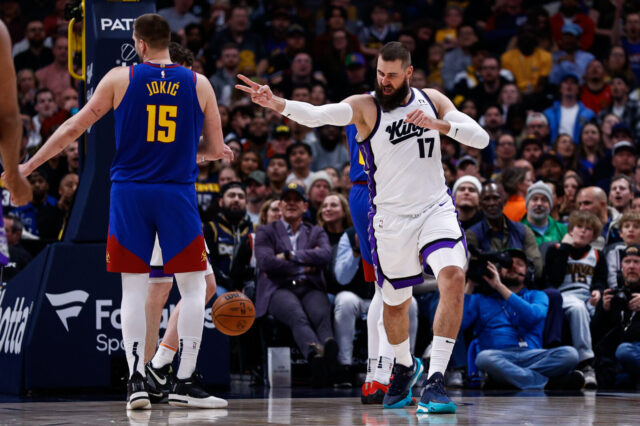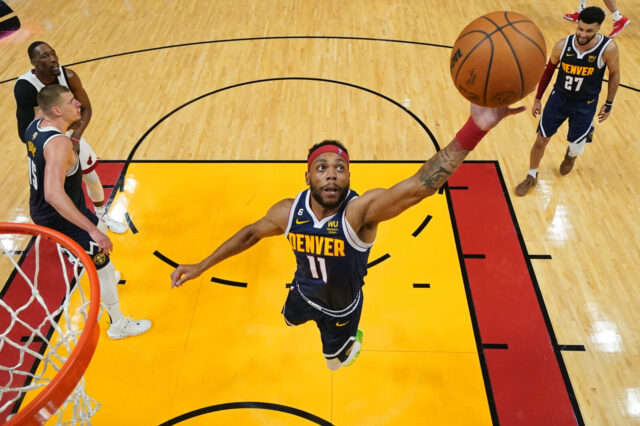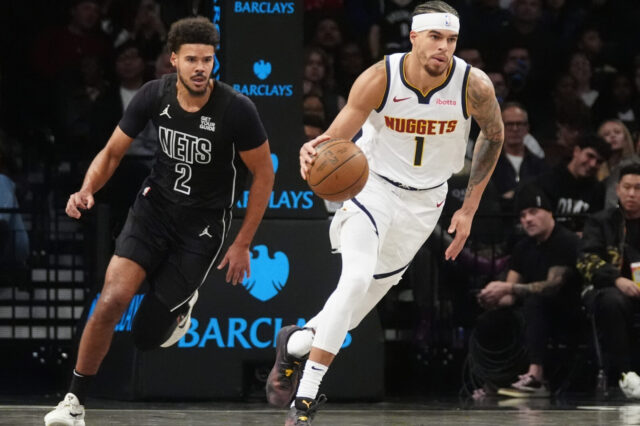One of the most common expressions in sports is that teams “control their destiny,” an idiomatic phrase generally used in reference to teams that are close to clinching playoff spots. Though the semantics of the phrase can be argued (can anyone actually control their own destiny?), the idea that a team does in fact control its playoff situation by winning a necessary amount of games regardless of how any other team performs will always be a narrative.
But a team “controlling its destiny” is so much more than just winning games towards the end of a season. To truly control its destiny, a team must do a myriad of little things correctly from the very start of the year which culminates in enough wins to make the postseason. Ironically, the teams that have the most control over their destiny in this sense are rarely in a position to be paired with the phrase to begin with. They have done enough work early on to not be chasing a low playoff seed late.
What separates the good teams from the great teams and the contenders from the pretenders the most is the ability and the mental drive to (1) compete hard every night and (2) execute in the fourth quarter, especially during winnable games. Perennial contenders like Golden State, San Antonio and Cleveland all have star talent, but these guys are stars because they are good at doing exactly these two things. More often than not these teams win the games they should win, even when facing adversity. These teams are in complete control of their destiny.
By almost all definitions the Nuggets are a good team that hasn’t yet made the leap to being a great team. One major hindrance to Denver’s success last season (and in recent years) was a lack of mental fortitude throughout the season. Yes, there were blowout wins and Nikola Jokic triple-doubles scattered throughout. But the Nuggets lost several games that they very well would have won had they simply executed in the fourth quarter. There were also games during the playoff race in which the Nuggets simply didn’t come ready to play.
A few games in particular come to mind. In the home opener against Portland, Denver held a close lead before Wilson Chandler missed two free throws to seal the game. Portland ran a crazy side out-of-bounds play to tie on a layup, then Damian Lillard sunk the Nuggets with a game winning layup in overtime.
On the road in Memphis a week later the Nuggets were up by one with about four seconds remaining but lost on a botched inbounds pass. You might remember this game as being decided by controversial refereeing on the second-to-last play, but that is absolutely not the case. Make the inbounds and Denver goes home with a win.
Then there’s the game when Denver was officially eliminated from playoff contention. Despite Russell Westbrook breaking the record for the most triple-doubles in a season, the Nuggets had a 101-88 lead with 2:58 remaining. Instead of finishing, Denver let Westbrook orchestrate an 18-4 run (!) in those last three minutes, capped off with a game winning three-pointer from freaking Boulder while the home crowd IN DENVER cheered wildly.
Still there were other games where the Nuggets were no-shows when they needed to win the most. In the middle of the playoff race in late March, the Nuggets hosted a New Orleans Pelicans team already eliminated from contention and playing without DeMarcus Cousins. With the opportunity to win and solidify their close lead in the playoff race, Denver mailed it in and turned out its softest game of the season in an embarrassing display.
The following game was the biggest of the year, with a tie-breaker and critical seeding up for grabs against Portland. Everyone knew that the winner of this game would most likely be the team to take the 8th and final playoff spot. With the season on the line, the Nuggets let former teammate Jusuf Nurkic walk all over them for arguably the best game of his career. Nurkic put up 33 points, grabbed 16 rebounds and wished the Nuggets a happy summer on his way out. The writing was on the wall.
Why do these games from last season matter? Because this roster is largely the same as last season. Replace Danilo Gallinari with Paul Millsap, maybe put Trey Lyles in on the bench and everyone else is the same. Michael Malone is still the head coach. Some roles and playing time might differ, but the front office has made it clear that it’s sticking with this group of guys now and likely for the next two seasons.
Will the addition of a proven veteran like Millsap be enough to get the team in line, or will the Nuggets continue to play not to lose? It cost them a playoff berth in 2016-17, and in an unforgiving Western Conference this season every game is going to matter. A playoff berth is not going to be handed to Denver on a silver platter just because they signed the biggest free agent in franchise history or because they are widely considered a must-watch “league pass” team. The Nuggets are going to have to fight tooth and nail for it every single night.
If in mid-April the Denver Nuggets are still playing basketball, it’s because they finally learned to dig deep and win the games they are supposed to win. It will be because the Nuggets earned it, not because other teams folded and gave in.
If in mid-April the Denver Nuggets are playing golf, well, you might know why.
The 2017-18 campaign begins on Wednesday night in Utah. It’s likely that the Nuggets will struggle as they adjust to major offseason changes, but they will still be a good team with the opportunity to do something special this year. To finally make the leap of becoming a great basketball team will require the Nuggets to have the mindset that they do in fact “control their destiny,” and they must have it from the very start of the season.
Don’t forget: Stiff’s Night Out is this week!
This content is no longer available.


